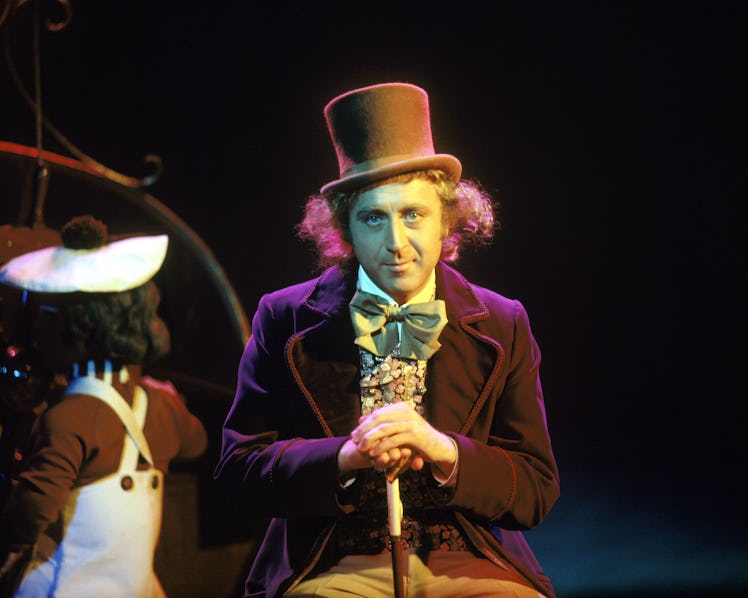New Versions Of Classic Roald Dahl Books Have Controversial Changes
Here's why new editions of The Witches and Charlie and the Chocolate Factory are causing an uproar.

Roald Dahl’s body of work is all over the place. Although the author penned such beloved classics as James and the Giant Peach, Charlie and the Chocolate Factory, Matilda, and several others, some of his other books are sometimes questionable by today’s standards. And although many of us still have a soft spot for the James Bond movie he wrote — You Only Live Twice — the Ian Fleming book version of that film is probably better. In his life, Dahl voiced various offensive opinions and was especially notorious for his antisemitic remarks, for which his family finally apologized in 2020. Squaring love of all things Dahl with the problematic author has been challenging pretty much since the beginning.
But, does that mean the original text of Roald Dahl children’s books should be modified to meet contemporary standards? Recently, the publisher Puffin revealed that new editions of Dahl classics — like The Witches (1983) and Charlie and the Chocolate Factory (1964) — would contain revisions designed to soften offensive content from the past. Puffin worked with a group called Inclusive Minds, which resulted in hundreds of changes, though representatives for the Roald Dahl Story Company say that the changes are “small and carefully considered.”
What are the changes to Roald Dahl books?
An entire list of changes to Dahl’s children’s books doesn’t yet exist. However, NPR, The Guardian, and The Telegraph note the following changes.
- In Charlie and the Chocolate Factory, the character Augustus Gloop is now called “enormous” instead of “fat.”
- Also in Charlie and the Chocolate Factory, the Oompa-Loompas are no longer “small men,” but “small people.”
- In The Twits, Mrs. Twit is no longer described as “ugly and beastly,” just “beastly.”
- The Cloud Men in James and the Giant Peach are now “Cloud People.”
- In The Witches, in which the narrator notes that Witches are bald underneath their wigs, a line is added to say: “There are plenty of other reasons why women might wear wigs and there is certainly nothing wrong with that.”
For historians, this last change is probably the strangest. Dahl isn’t alive to collaborate with an editor on new lines to his book, and of course, hyperbolic texts like The Witches are full of all sorts of moments in which there are obvious exceptions.
Roald Dahl, looking grumpily at himself in 1960.
Roald Dahl “censorship” backlash
Although the intention of Puffin and the Dahl estate seems well-motivated, various authors and anti-censorship advocates have weighed in. Noted author Salman Rushdie — who has literally had his life threatened because of his writing several times — tweeted this: “Roald Dahl was no angel but this is absurd censorship. Puffin Books and the Dahl estate should be ashamed.” Suzanne Nossel of Pen America — a group that fights censorship and persecution of writers — also noted that the move from Puffin and the Dahl estate had her and her colleagues “alarmed.” Her point is a slippery-slope argument. Once texts are altered like this, it could happen again. And perhaps, next time, with less-than-good intentions. For progressive parents, having an inclusivity group alter books with problematic content might scan as acceptable. But, what if the ideological group wasn’t aligned with your values? What then?
To be fair isn’t uncommon for the estates of various authors to self-censor, or even stop publishing new versions of an older book. In 2021 the estate of Theodor Geisel ceased publishing new versions of six different Dr. Seuss books. But, this is a little different than changing the content of certain books. There are also some fairly innocuous changes that seem like changes for the sake of it. For example, is the “Cloud Men” really that offensive in a work of fiction? Isn’t what Roald Dahl said in his private life much worse than anything in his books?
Either way, if parents do encounter new copies of Roald Dahl books in the wild, now you know: These changes may not even be perceptible. And perhaps, are small enough to achieve their stated goal of infusing more inclusivity into old books. And yet, because of these changes, the fact remains, for better or worse, these new versions aren’t the books you remember.
This article was originally published on